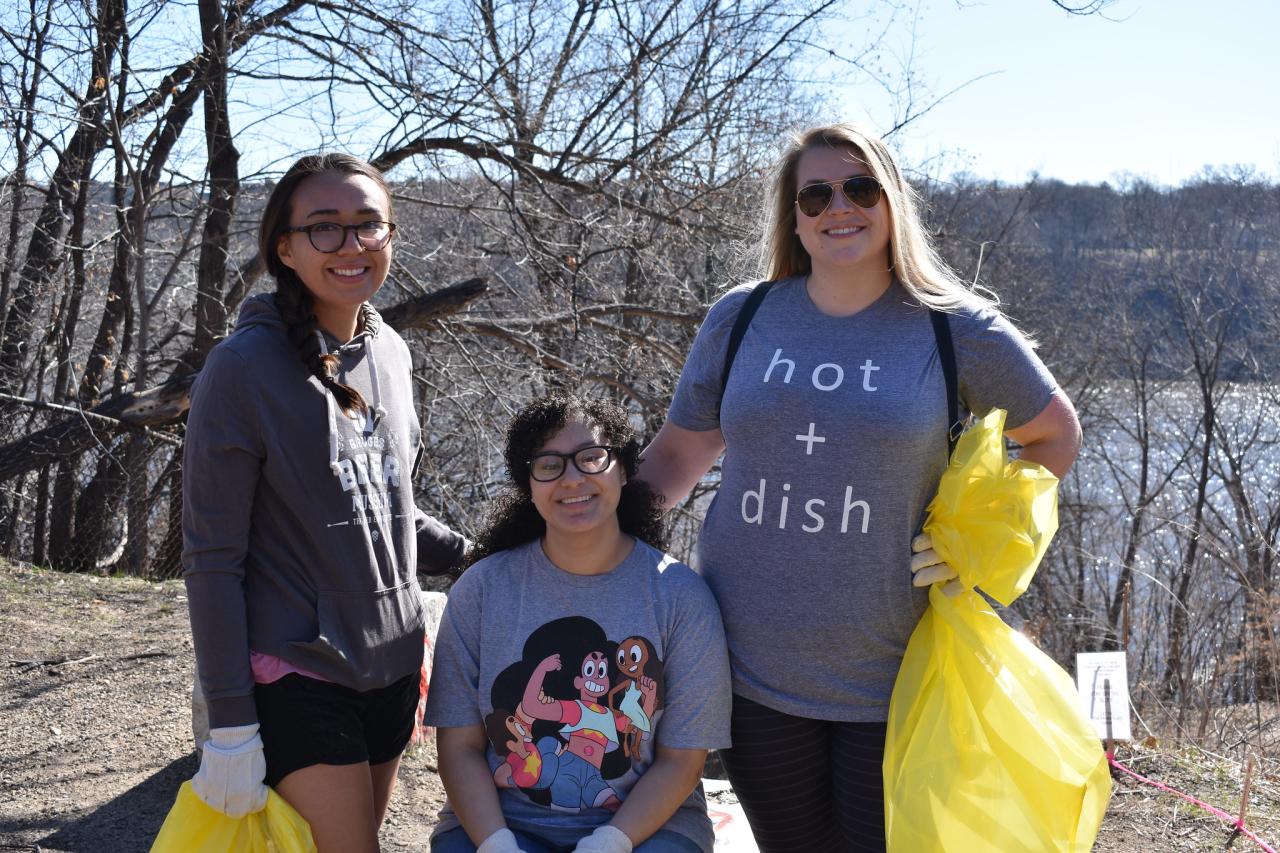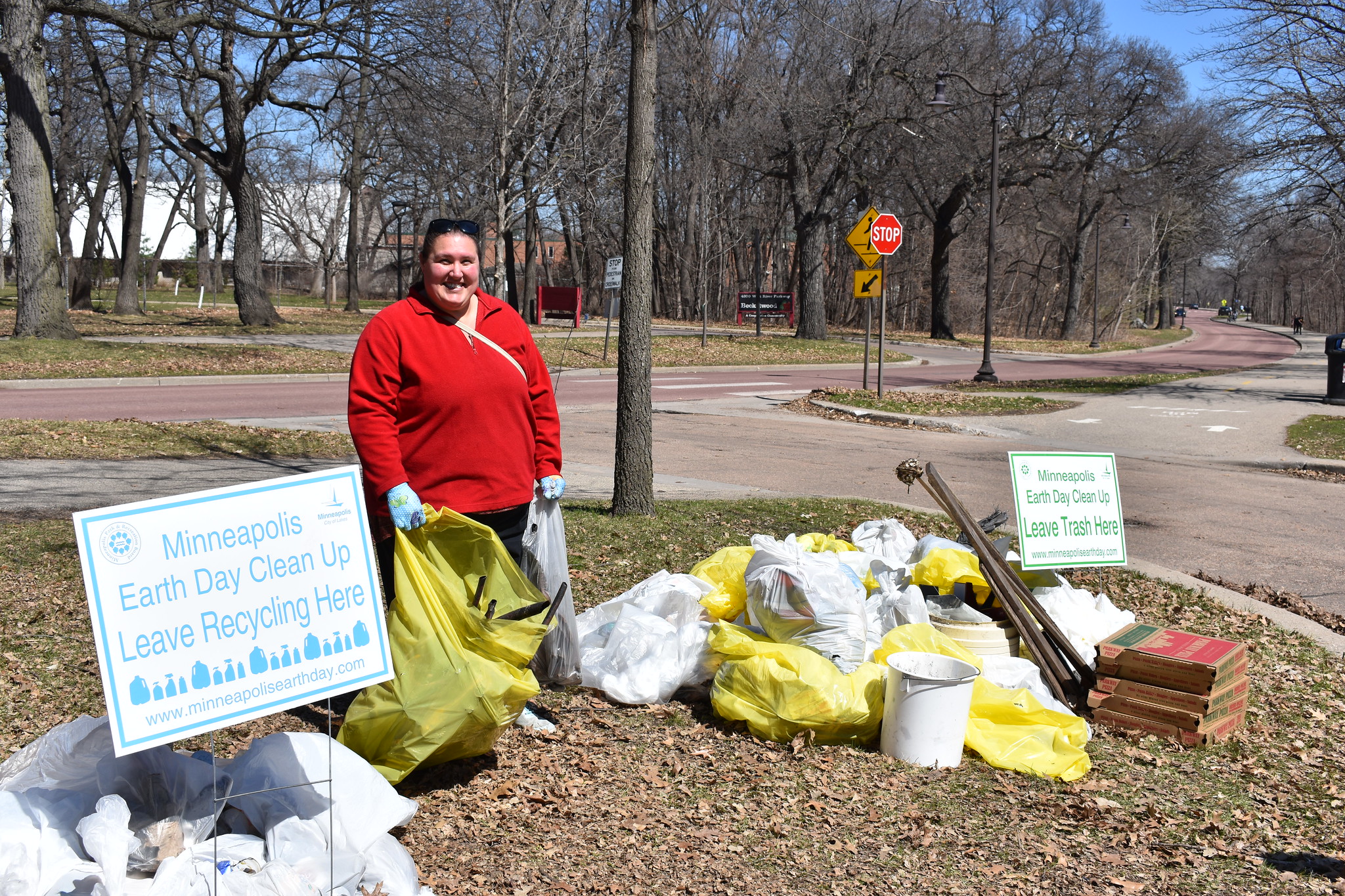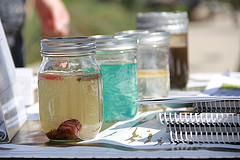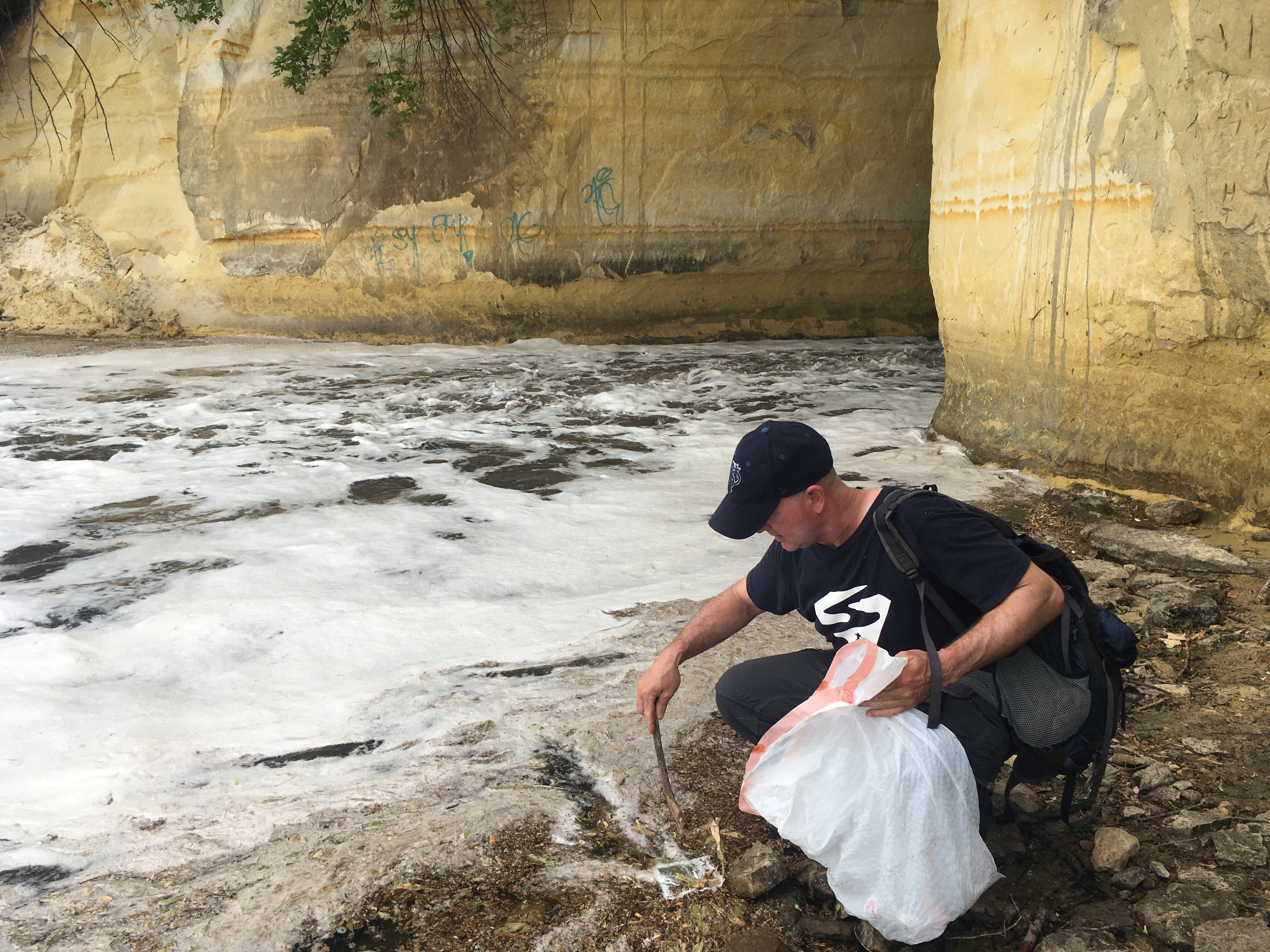Why we pick up trash

It may seem odd to have a web page about picking up litter: Doesn't everyone know why it's important and how to pick it up? However, some things about cleanups are counterintuitive.
FMR staff provide an overview with the following information at the beginning of each FMR cleanup; however, a brief rundown of cleanup basics is below.
There are many reasons to pick up trash, from protecting wildlife and helping water quality to simply showing our pride in our local environment and community.
What to pick up:
Sometimes at litter cleanups, people hit a "jackpot," a former dumping ground or unofficial party spot replete with trash.
However, this is not always the case, especially in some of the higher quality and beloved areas where we hold clean-ups. Why would we have a cleanup someplace that isn't covered in old tires and empty bottles? Because smaller items have a big impact on wildlife habitat and watershed health.
So do pick up cigarette butts, small bits of plastic, discarded straws, etc. It may take you a half-hour to fill your bag just one-tenth full, but even with trash, sometimes it's about quality, or impact, not quantity.
What NOT to pick up:
In short, use your best judgment to avoid anything too heavy, sharp or potentially hazardous.
Why we pick up trash
Wildlife

Here's what the end of a river cleanup looks like - piles and piles of trash! 2019 Earth Day volunteers made sure that all this trash wouldn't interfere with critical habitat in the river gorge.
The Mississippi River, its tributaries, and floodplain support wetlands, forests, grasslands, and farmland, providing habitats and homes to an enormous amount of wildlife. Of America's millions of migratory birds, as much as 60 percent visit the Mississippi River sometime during the year making it even more important that we do our part and help clean up the rubbish that litters the riverway.
Many plastics degrade and leach toxins into the waters, causing a host of problems for wildlife. Often, fish, turtles, and birds mistake small bits of glittery potato chip bags, bits of straws, and even cigarette butts for food, causing internal damage. They become entangled and killed from fishing line, string, plastic six-pack holders, and even the plastic rings from the tops of plastic pop and water bottles.
Drinking water

Samples of major contributing factors, like anti-freeze, leaves, and litter that have broken down in water. Photo credit: Rich Wahls
The Mississippi River is the Twin Cities' largest contributor to the drinking water supply. Old tires, cigarette butts, plastic bags, and a whole assortment of unsavory items make it more difficult and more expensive for municipal water services to filter pollution here and downstream. They also introduce toxins that we may not be able to remove from our drinking water. The best way to keep both our water supply clean is to remove litter and pollutants from in and along the river to prevent future contamination.
Aesthetics/community quality

SuperVolunteer Tim Turner fishes trash out of the Mississippi near a storm drain outlet. Removing trash from this spot will help preserve the beaches and shorelines downstream.
When volunteers like you take the time to clean up an area, big or small, you are working to improve the community you live in. Not only is the Mississippi River the home to a diverse range of species and a major source of the community's drinking water, but the great waterway is also a feature for people to enjoy, providing several opportunities for recreation, being a part of our home. As volunteers, your efforts assist in all of these aspects.
How can I help?
Because all storm drains in St. Paul and Minneapolis lead to the Mississippi, picking up trash from your neighborhood streets, boulevards and parks is a great way to contribute to the health of the river and our environment. If you want to organize a group cleanup, check out FMR's group offerings. Or reach out to your local parks department.